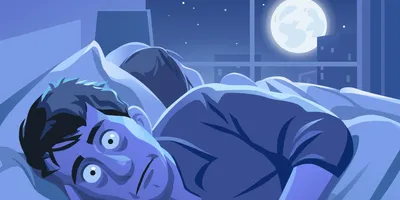For centuries, folklore has claimed that the full moon affects human sleep, with stories of restlessness and vivid dreams during this lunar phase. But is there any scientific basis for this belief? Researchers from around the world have studied whether the lunar cycle influences sleep patterns, and some studies suggest that the full moon may indeed have an impact.
The Science Behind the Full Moon and Sleep
Several scientific studies have attempted to determine whether lunar phases affect sleep, but results have been mixed. A Swiss research study found that during the full moon, people:
- Sleep 20 minutes less on average
- Take five minutes longer to fall asleep
- Experience 30 minutes more REM sleep, the stage in which most dreaming occurs
These findings suggest that the full moon might alter the quality and duration of sleep, possibly increasing the frequency of vivid dreams and nightmares. However, other studies have found no such correlation, leading to ongoing debate in the scientific community.
Conflicting Studies: Does the Full Moon Really Matter?
Over the years, numerous studies have investigated the effect of the full moon on sleep, with varying results. Researchers at the Max Planck Institute analyzed sleep data from over 1,000 people and 26,000 nights of recorded sleep but found no link between lunar phases and sleep disturbances (Cajochen et al., 2013).
Despite these conflicting findings, many scientists believe there is still more to uncover. Michael Smith and his team at Sahlgrenska Academy reanalyzed sleep study data, comparing sleep patterns with the lunar cycle. Their results supported the Swiss findings:
- Participants slept an average of 20 minutes less during the full moon
- Subjects had greater difficulty falling asleep
- Interestingly, the most significant REM sleep impact occurred during the new moon
Is the Brain More Susceptible During the Full Moon?
One hypothesis suggests that the brain may be more susceptible to disturbances during the full moon. Researchers at Sahlgrenska Academy found that cerebral cortex activity increased during this phase, indicating greater sensitivity to external stimuli.
Michael Smith explains, "Re-analysis of our data showed that sensitivity, measured as reactivity of the cerebral cortex, is greatest during the full moon." This could mean that people wake up more easily or have lighter sleep during the full moon.
Interestingly, the study also found that while both men and women experienced increased brain activity, only men had more difficulty falling asleep and reported shorter sleep duration.
The Role of Light and Circadian Rhythms
Skeptics argue that other factors could explain these findings, such as age, gender, physical condition, or exposure to light during the day. However, Smith notes that the study took place in a controlled sleep laboratory without windows, eliminating the possibility that moonlight itself caused sleep disturbances.
One theory is that the full moon could influence the body's internal clock, similar to the way the circadian rhythm regulates sleep-wake cycles. While research on this topic is still in its early stages, some scientists believe there may be an evolutionary link between the moon and human biology, possibly dating back to when our ancestors relied on moonlight for survival.
Need for More Research
While some evidence supports the idea that the full moon affects sleep, the scientific community has yet to reach a consensus. More highly controlled studies are needed to understand:
- Whether the full moon directly affects melatonin production, the hormone responsible for regulating sleep
- If the lunar cycle influences sleep architecture, particularly REM sleep and dreaming
- Whether people are psychologically predisposed to expect poor sleep during a full moon, creating a placebo effect
Until more definitive studies emerge, the mystery of the full moon and sleep disturbances remains unresolved. Whether it's a biological reality or merely a myth influenced by folklore, the question continues to intrigue both scientists and the general public alike.
This content includes text that has been generated with the assistance of AI. Lab Manager’s AI policy can be found here.














